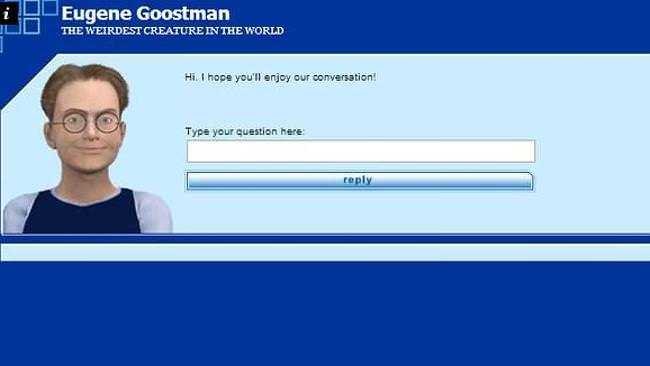She has caused a "storm" in her world technology the announcement from the University of Reading about passing the "test Turing" by "Eugene Ghostman” – of a program which, it was announced over the weekend, has “for the first time” passed the famous test, which is considered to be a landmark/criterion for when a machine can be considered "thinking".

In a particularly "bitter" article by Techdirt, it is stated that the "Eugene Goostman" of Vladimir Veselov and Eugene Demchenko, awarded at an event organized by the university at the Royal Society in London, was not some kind of "supercomputer" but a chatbot, i.e. a script specifically designed to mimic human conversation, so it's not 'artificial intelligence'.
It is also claimed that other such chatbots have been shown to pass the "Turing test" (where a computer "tricks" them people interlocutors, making them think they are dealing with a human and not a computer), and that the "success" is due to "misleading" the rules (the fact that a 13-year-old boy from Ukraine was pretending somehow "covered up" some strange answers ).
Also, in this issue, the credibility of one of the organizers, Kevin Worwick of Reading University, is being questioned, who is accused of repeated misleading claims.
According to a Guardian article, Steven Harnad, a professor at the University of Quebec (Montreal), argued that whatever happened to the Royal Society did not constitute a "passage" of the Turing test. "We have not passed the Turing test. We have not even come close. "
"Turing's thought was that the best way to explain how the mind works is to design a system that can do what the mind can do. This includes all our talk capabilities, as well as the sensations and perceptions ... not for five minutes, but for a lifetime. "
According to a Huffington Post article, many experts in the field of artificial intelligence question the validity of the "publishing" of the Turing test used by the Reading University.
Gary Markus, a professor at New York University, talked about something far from real intelligence, while Hugh Lembert, the creator of a similar contest, says the time frame for discussion was too small to make a right decision. For his part, Douglas Lenat, Cycorp's Artificial Intelligence Investigator and Chief Executive Officer, commented that "if I teach my parrot to say a lot, answering my words, she may be lovable, but not intelligent."
However, John Denning, who worked with Veselov, speaking to the Guardian supported the program, noting that "I think we passed 'a' Turing test, but I don't know if it was 'the' Turing test. Is Eugene smarter than a person? No. You're not going to put your life in the hands of a 13-year-old who makes jokes and has a weird sense of humor."
Also, in a statement to PC World, Columbia University professor Tony Tzampara welcomed the achievement, noting that from the moment of its conception, the notion of artificial intelligence is determined by one milestone after another, "whether he is playing chess or whether learns to draw up proposals. "
"We have said over and over again that 'once a computer can do this, we will have created intelligence.' However, every time we reach a milestone, we stand back and say 'this is still not AI' and raise the bar even higher. We still have a lot to do and learn about how to make computers intelligent and how our brains work."
It is noted that the Reading University's original posting on the Internet was modified so that Eugene could be described as a computer program rather than a supercomputer. Also, details of the nature of the competition tests, as they were done at the Royal Society, are also provided.





